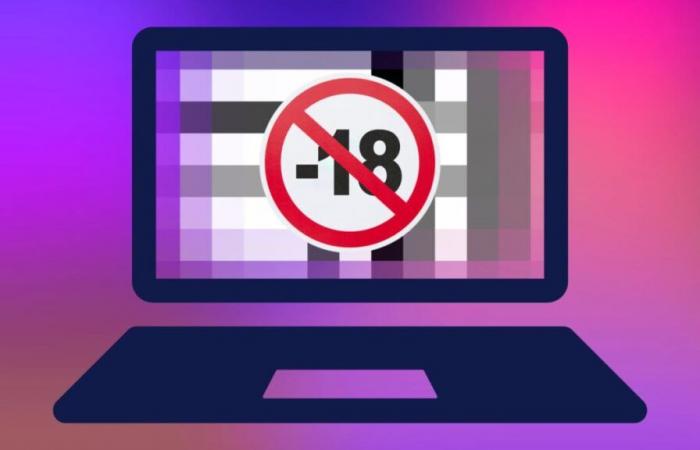Four pornographic sites are now blocked in France because they do not correctly verify the age of Internet users, according to the courts. Unfortunately, the sanction may not be very effective.
« A huge victory in the fight for online child protection “. This is how Jean-Noël Barrot, Minister for Europe and Foreign Affairs – and former Minister Delegate for Digital Affairs in the government of Élisabeth Borne – celebrates the blocking of four pornographic sites in France. In a message published on X/Twitter, he shares a screenshot where we see that the Tukif site is now inaccessible.
In addition to the aforementioned platform, the sites Xhamster, Mrsexe and Iciporno are also blocked in the same way. For what ? Because they are accused of not properly verifying the age of Internet users who go there. This measure comes after a decision by the Paris Court of Appeal (PDF document) in October, when this sanction had been in the pipeline for a very long time.
How are these sites blocked?
Blocking is quite simple. French Internet Service Providers (ISPs) must modify their DNS servers so as not to link to the pornographic sites concerned. For informational purposes, a DNS is a system that will “translate” the URL of a site, for example, www.Frandroid.com, into the corresponding IP address of the server that hosts the site, made up of numbers and of points. Instead of remembering that complicated number, you just need to remember the name of the site. And that’s thanks to DNS servers; and by default those of your operators.
Coming back to the sanctioned pornographic sites, they still exist, they have not been removed, but the telecom operators will automatically redirect to an error page when a person tries to go there. Like you type in the right phone number to call, but it doesn't even ring on the other end.
A dissuasive blockage, but not total
However, it is precisely here that we must remember that this sanction does not guarantee a total blocking of these four adult sites. It will above all represent a means of deterrence, but the platforms in question remain, in reality, accessible.
Changing your DNS is, in fact, not a very complex task. Some people use it to benefit from faster Internet access or to circumvent the censorship of certain governments in certain countries. Although a good part of the general public will probably not try to bother with this type of process, it is not impossible that people, particularly minors, who are a little resourceful will use this stratagem to nevertheless access the four pornographic sites blocked.
It would in fact be enough to go through a DNS server which does not follow the same instructions as those of the ISPs to erase the effects of the blocking. You don't even need to use a VPN.
A step taken, but not yet a victory
So, ” the immense victory» claimed by Jean-Noël Barrot still deserves some reflection. Although dissuasive measures have a certain effectiveness, their coercive powers remain limited. Let's keep in mind that the web will always be full of tools of all kinds to bypass this or that blockage. In the case of the four blocked sites, it would undoubtedly be better to speak of an important and symbolic step, but the fight for the protection of minors online still has a long way to go.






